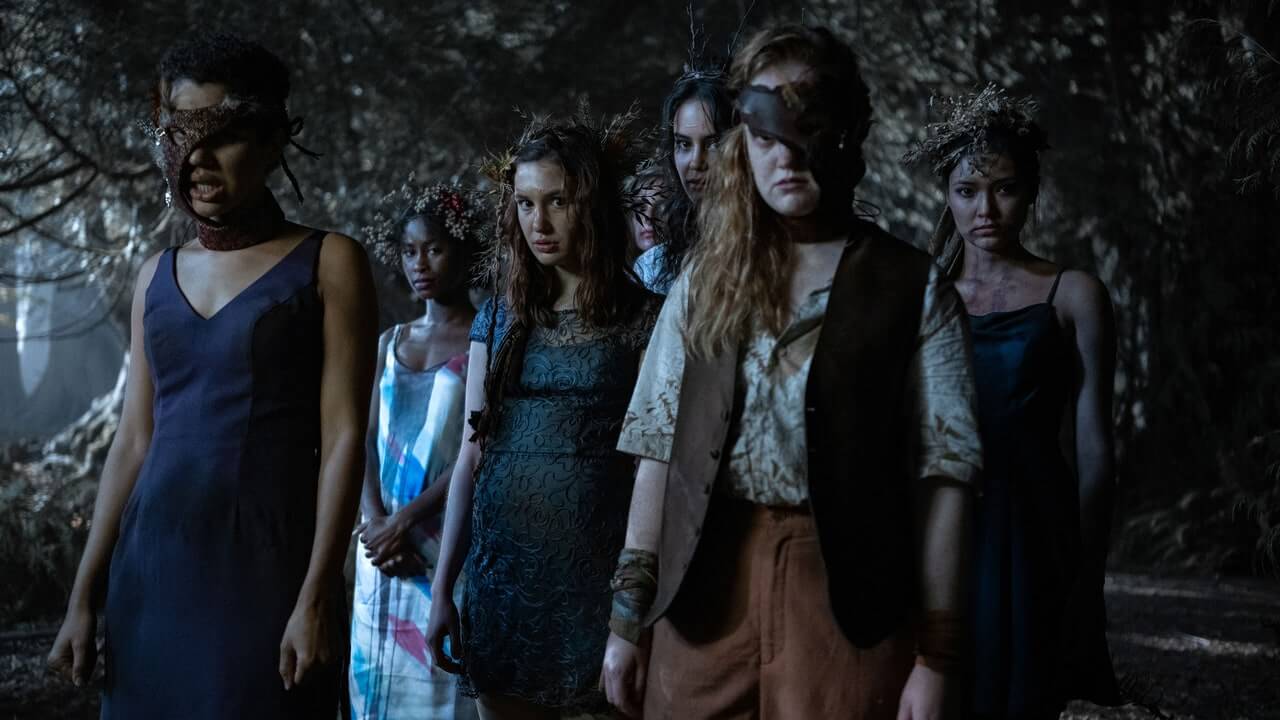In 1996, after a private plane crashes in the Canadian wilderness, its passengers, the members of a varsity girls’ soccer team, must go to extreme lengths to stay alive. Meanwhile, in the present day, a group of haunted survivors, now tabloid-famous, struggle to live normal, suburban lives while guarding the truth of what happened in the woods. The short answer? They ate one another.
This is “Yellowjackets,” Showtime’s gripping new drama, which concludes its first season on Sunday. Beyond making inescapable comparisons to ABC’s “Lost,” critics have praised the show for its unsparing look at the trauma of female adolescence and its long-toothed effects. Appropriately, three of the present-day survivors are played by Melanie Lynskey, Juliette Lewis, and Christina Ricci, all former teen actresses from the nineties. “You could say that we are all bonded by the trauma of having been very young and very famous,” Ricci has said. The creators of “Yellowjackets” have called trauma “a big theme” of the show, expressing their interest in exploring it from a “personal” angle rather than a clinical one. Several critics have followed suit, with one reviewer insisting that, even in a crowded field of shows claiming to be about trauma, “Yellowjackets” was the real deal.
Indeed, the series appears to neatly bolster Parul Sehgal’s recent claim that the trauma plot has cannibalized all others. “With the trauma plot, the logic goes: Evoke the wound and we will believe that a body, a person, has borne it,” she writes. For Sehgal, the trauma plot transcends genre. It bites into the diasporic epic, the novel of manners, the uplifting sports comedy. It gnaws character down to the bone of backstory. Its game is wide-ranging: television shows like “Ted Lasso,” “WandaVision,” “Fleabag”; fiction by Hanya Yanagihara, Jason Mott, Karl Ove Knausgaard; even superhero movies. Should “Yellowjackets” be added to this vast ward, or does it have…






